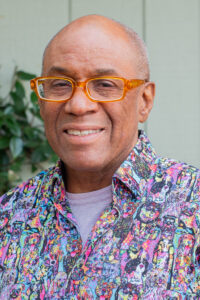Covid-19 Vaccine, Privilege, and Anxiety
I see the Covid-19 vaccine as a privilege issue that is causing undue anxiety all around us.
There is a 1961 Twilight Zone episode titled “The Shelter.” The show depicts a group of neighbors, including a doctor who provided care to all the others, attending a birthday party at the doctor’s house. When a big voice reports an imminent nuclear attack, the friends turn on the doctor and his family. Everyone panicked.
Friendships between the doctor’s family and the neighbors evaporated fast. The Covid-19 vaccine, privilege, and resulting anxiety is real.
As the Covid-19 vaccine gets rolled out, I feel like something is awry. Did we hear a big voice speak and forget “we’re all in this together”? There’s a race to get the vaccine before anyone else. Did we forget we recently put others ahead of ourselves?
It will take time, but everyone is getting a Covid-19 vaccination. President Biden is doing all he can to assure Americans the shot is coming to an arm near them. Unlike previous pandemics, it’s not so simple as standing in line and being administered a sugar cube.
There’s a pecking order this time. Many of us must wait longer than others. Even in single households, some get the shot sooner than others.
Whether you get the shot eventually, it’s nothing to be proud of. It’s not a reward. As a minister, I say it’s a moment of grace, something unearned.
Unlike the Twilight Zone, there is no inescapable nuclear attack coming. People can stay at home, wear a mask when in public, wash their hands often, and limit exposure when around people outside their household.
I don’t mean to minimize the risks and deaths associated with the pandemic. Death is real. Being on a vent is real. So is watching a loved one pass away while separated by an ICU window.
There is a social justice aspect to vaccines. People of color haven’t been vaccinations in an equal ratio to White people. Many countries have yet to receive vaccines in significant numbers. The rollout needs more equity built into the process.
Many are at the bottom of the pecking order. They don’t have internet access to register. Some lack transportation to vaccination stations. Others live in communities where people consider the vaccine harmful. It’s reminds us of past episodes of public health gone wrong in America. They’re the most likely to contract the illness and dying.
Should we remind ourselves that just a few months ago our mantra was “We’ll get through this together”? Can we look beyond our personal needs, relax, and take confidence in President Biden’s pledge that all Americans will get the vaccine by late summer?
Evidence supports the president’s agenda. The biotechnology researcher Matthew Harrison of Morgan Stanley reports that 70% of shots distributed get into arms. That is up from 20% shortly after they released the vaccine. Secondly, “the supply of vaccines in the US has pretty much been on target with what the manufacturers were estimating.”[1]
And finally, the vaccine is effective enough that “it prevents severe disease, it still prevents possible hospitalizations, and vaccines are still working against [known] variants.” This data ought to calm people down.
In “The Shelter,” the doctor’s family had built a fallout shelter in their basement. It was only big enough to hold three people, however. Because the neighbors couldn’t fit into the shelter, they broke down the door and forced their way in, destroying a part of the doctor’s home.
The best way to reduce fear is to challenge your thought process. , or at the very least controlling it, is to challenge your way of thinking. Pam Custers, a licensed therapist, says “It’s a balance between challenging thought processes and having healthy caution.”[2]
Let’s be cautious and not force our way into the lines of vaccination stations. We may have to wait, but the shot is coming to an arm near you.
There’s a big voice out there speaking to us. It’s urging us to be calm. Keep calm; you’ll be vaccinated, eventually. In the meantime, be safe.
[1] Thoughts On The Market, “Covid-19: Variants, Vaccines, and the Road Ahead,” Morgan Stanley, February 11, 2021 podcast.
[2]Natasha Hinde, “Coronavirus Anxiety Is Real – 7 Tips From Therapists On How To Cope,” Huffington Post, February 27, 2020, https://www.huffingtonpost.co.uk/entry/coronavirus-anxiety-how-to-cope_uk_5e395713c5b687dacc72dea8.


Leave a Reply